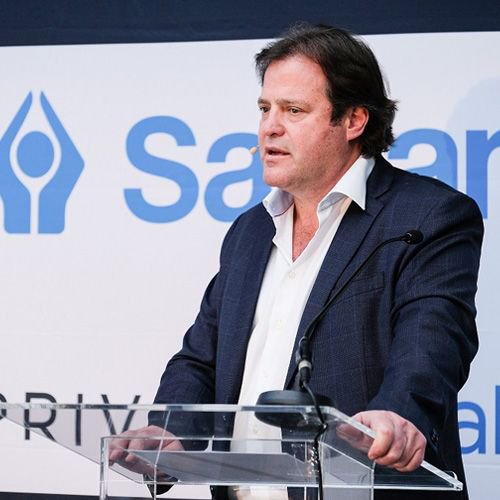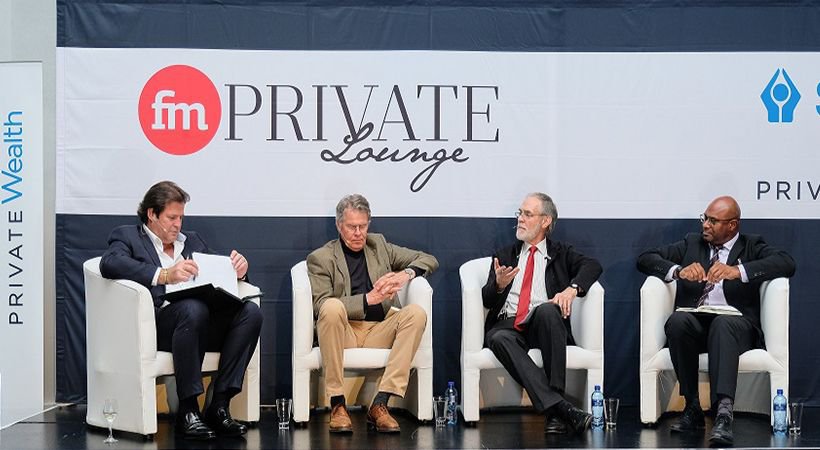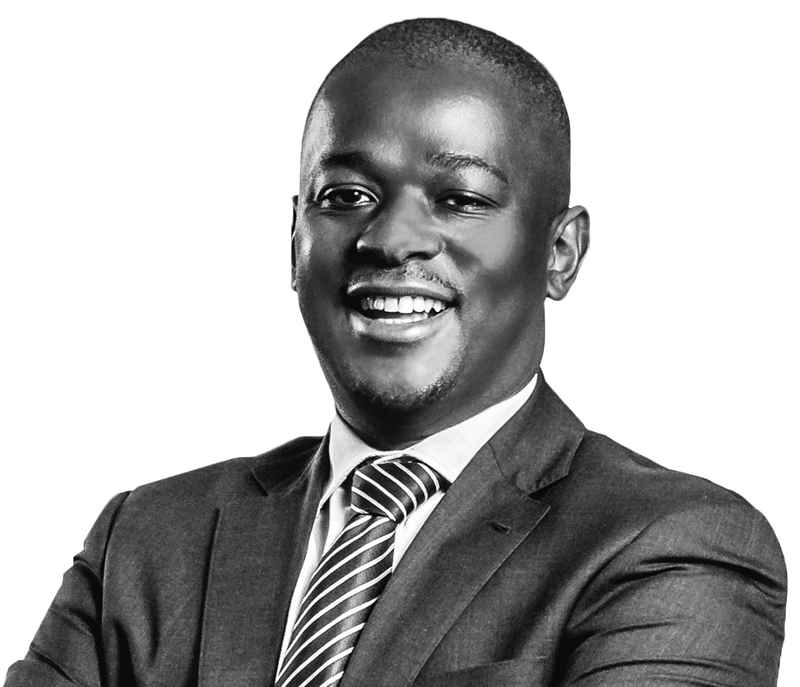Stay abreast of COVID-19 information and developments here
Provided by the South African National Department of Health
Reserve Bank must be defended
– SPW panel
It’s been a trying year for the South African Reserve Bank (SARB). With questions around the independence of our central bank gaining momentum, it will be under increased scrutiny leading up to the ANC elective conference in December. The bank’s role and mandate came under the spotlight during a lively panel discussion Sanlam Private Wealth held in partnership with Financial Mail in Johannesburg recently

The SARB came under fire from Public Protector Busisiwe Mkhwebane in June this year when she ordered Parliament to amend the Constitution to change the bank’s mandate, which would effectively put an end to inflation targeting.
The High Court subsequently ruled Mkhwebane’s order was unconstitutional and irrational, stating ‘she has no power to order an amendment of the Constitution’. The Public Protector’s demand nonetheless sparked further calls within factions of the ANC to ‘nationalise’ the bank.
The panel discussion, led by Sanlam Private Wealth CEO Daniël Kriel, vehemently argued that the bank must remain independent of politicians – whoever wins the ANC election in December. The rest of the panel was made up of SARB Deputy Governor Kuben Naidoo, economist Roelof Botha and Tiso Blackstar
Editor-at-large Peter Bruce.
Daniël told the panel it’s imperative that the ‘independence, ownership and mandate of the bank’ aren’t tinkered with unnecessarily by politicians, as this could have serious ramifications for the monetary health of all South Africans.
Kuben also defended the central bank’s independence, saying the recent political attacks were distracting from its real job, namely protecting the currency, while setting interest rates based on inflation measures. He pointed out that the SARB has become a staging ground for a political fight, based on the mistaken belief that if it is nationalised and shareholders dissolved, it will lead to GDP growth and an increase in job creation. The reality, however, is that these private shareholders have no influence over SARB policy or interest rate decisions.
Peter told the panel private ownership of the SARB was ‘an accident of history’. He said many central banks started off as commercial banks, so vestiges of private ownership were not that unusual. ‘What we need to be careful of is the degree to which the SARB is independent of political interference.’
Roelof agreed that the SARB’s independence should be defended against political meddling. With regard to the bank’s mandate, he said its main role is to keep a balance between combating inflation and stimulating the economy. The bank should be more flexible when it comes to interest rates, however. ‘Higher interest rates are not going to make it rain.’
Referring to the dual mandate of the US Federal Reserve – ensuring price stability and maximising employment – Peter said that with South Africa’s high unemployment rate it may not be ‘unreasonable’ for the SARB to have a mandate similar to that of the US Fed. Kuben argued, however, that South Africa needed to first and foremost focus on addressing the structural issues in the economy.
He said one of the things driving the present level of criticism against the SARB is a ‘passing of the buck’. ‘The people whose job it is to grow the economy and take the decisions to give investors certainty are not doing their job. We’re in a low-growth environment and the SARB is an easy target.
‘The key reason why the economy is not growing is not because of higher interest rates. It is because of a lack of structural reforms, a lack of confidence among the public and private sector, and we’ve not been able to provide the policy certainty needed to drive investment. Over the last three or four years we’ve had to manage a massive depreciation in the exchange rate, without undermining the nation’s savings, or the country’s competitiveness. We’ve been able to do this in a very measured way. We’ve increased interest rates to be able to stabilise inflation.’
Any bid to alter the bank’s mandate, Kuben said, would erode competition in the wider economy, reduce South Africans’ net wealth (held in savings) and lead to higher unemployment.
Roelof agreed that the more serious structural issues facing South Africa’s economy need to be urgently addressed. ‘Skills training, for example, is a very important aspect of future economic policy. Also, we hope that towards December we’ll see a shift towards getting rid of corruption and a more focused approach towards economic policy in general.’
Peter warned that Nkosazana Dlamini-Zuma, a contender in the ANC presidential race, has been echoing the Public Protector’s stance on the SARB and its mandate. Dlamini-Zuma has stated that the central bank will no long be allowed to hang on to its ‘amorphous independency’.
‘When push comes to shove, no matter how independent the central bank, the politicians tend to win. The bank’s leadership are going to have to stand up to the most awful kinds of pressures. The SARB is an important institution in this country – it is stable, it has reliable policies and it is widely admired. But it is a target, and if we don’t think it’s a target, we’re kidding ourselves.’
While most economists would argue that any threat to the SARB’s independence could spark further ratings downgrades, Governor Lesetja Kganyago and his deputies may find themselves battling it out in the trenches come December.
Sanlam Private Wealth manages a comprehensive range of multi-asset (balanced) and equity portfolios across different risk categories.
Our team of world-class professionals can design a personalised offshore investment strategy to help diversify your portfolio.
Our customised Shariah portfolios combine our investment expertise with the wisdom of an independent Shariah board comprising senior Ulama.
We collaborate with third-party providers to offer collective investments, private equity, hedge funds and structured products.

Using your equity portfolio to secure credit allows you fast access to capital.
Sizwe Mkhwanazi has spent 14 years in Investment Management.

Have a question for Sizwe?
South Africa
South Africa Home Sanlam Investments Sanlam Private Wealth Glacier by Sanlam Sanlam BlueStarRest of Africa
Sanlam Namibia Sanlam Mozambique Sanlam Tanzania Sanlam Uganda Sanlam Swaziland Sanlam Kenya Sanlam Zambia Sanlam Private Wealth MauritiusGlobal
Global Investment SolutionsCopyright 2019 | All Rights Reserved by Sanlam Private Wealth | Terms of Use | Privacy Policy | Financial Advisory and Intermediary Services Act (FAIS) | Principles and Practices of Financial Management (PPFM). | Promotion of Access to Information Act (PAIA) | Conflicts of Interest Policy | Privacy Statement
Sanlam Private Wealth (Pty) Ltd, registration number 2000/023234/07, is a licensed Financial Services Provider (FSP 37473), a registered Credit Provider (NCRCP1867) and a member of the Johannesburg Stock Exchange (‘SPW’).
MANDATORY DISCLOSURE
All reasonable steps have been taken to ensure that the information on this website is accurate. The information does not constitute financial advice as contemplated in terms of FAIS. Professional financial advice should always be sought before making an investment decision.
INVESTMENT PORTFOLIOS
Participation in Sanlam Private Wealth Portfolios is a medium to long-term investment. The value of portfolios is subject to fluctuation and past performance is not a guide to future performance. Calculations are based on a lump sum investment with gross income reinvested on the ex-dividend date. The net of fee calculation assumes a 1.15% annual management charge and total trading costs of 1% (both inclusive of VAT) on the actual portfolio turnover. Actual investment performance will differ based on the fees applicable, the actual investment date and the date of reinvestment of income. A schedule of fees and maximum commissions is available upon request.
COLLECTIVE INVESTMENT SCHEMES
The Sanlam Group is a full member of the Association for Savings and Investment SA. Collective investment schemes are generally medium to long-term investments. Past performance is not a guide to future performance, and the value of investments / units / unit trusts may go down as well as up. A schedule of fees and charges and maximum commissions is available on request from the manager, Sanlam Collective Investments (RF) Pty Ltd, a registered and approved manager in collective investment schemes in securities (‘Manager’).
Collective investments are traded at ruling prices and can engage in borrowing and scrip lending. The manager does not provide any guarantee either with respect to the capital or the return of a portfolio. Collective investments are calculated on a net asset value basis, which is the total market value of all assets in a portfolio including any income accruals and less any deductible expenses such as audit fees, brokerage and service fees. Actual investment performance of a portfolio and an investor will differ depending on the initial fees applicable, the actual investment date, date of reinvestment of income and dividend withholding tax. Forward pricing is used.
The performance of portfolios depend on the underlying assets and variable market factors. Performance is based on NAV to NAV calculations with income reinvestments done on the ex-dividend date. Portfolios may invest in other unit trusts which levy their own fees and may result is a higher fee structure for Sanlam Private Wealth’s portfolios.
All portfolio options presented are approved collective investment schemes in terms of Collective Investment Schemes Control Act, No. 45 of 2002. Funds may from time to time invest in foreign countries and may have risks regarding liquidity, the repatriation of funds, political and macroeconomic situations, foreign exchange, tax, settlement, and the availability of information. The manager may close any portfolio to new investors in order to ensure efficient management according to applicable mandates.
The management of portfolios may be outsourced to financial services providers authorised in terms of FAIS.
TREATING CUSTOMERS FAIRLY (TCF)
As a business, Sanlam Private Wealth is committed to the principles of TCF, practicing a specific business philosophy that is based on client-centricity and treating customers fairly. Clients can be confident that TCF is central to what Sanlam Private Wealth does and can be reassured that Sanlam Private Wealth has a holistic wealth management product offering that is tailored to clients’ needs, and service that is of a professional standard.